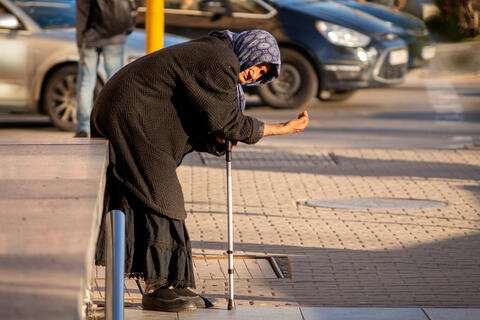Last month, Jordan's parliament started debating the new law for children's protection, which has been long in the planning, particularly since Jordan signed the Convention on the Rights of the Child in 2006. Yet, many Jordanians are reacting with strong opposition to the law.
Even though the controversial law has not yet been passed by the Jordanian Parliament, more and more voices are now debating whether or not the country needs a new law for children's protection.
Source: Twitter
While articles of the new law are still unknown to most people, many Jordanian expressed fears that it will "limit" parents' role in raising their children, especially since it has a firm stance against beating children, a practice still widely in use in Jordanian families.
Opposition against the new child protection law has grown even more popular after several religious figures deemed it as "threatening to Islamic values".
#قانون_الطفل_مسموم ان هذا القانون اكتوى به الطفل الغربي ، حيث يخول له تحويل جنسه او ان يصبح شاذا ، كما يجرم من تسول له نفسه تقويم سلوكياته ، فهل هذا ما تريدون الأبناء المسلمين ؟!
— essafi abdellatif (@essafiabdellat1) August 16, 2022
Translation: "Western children have long suffered because of this law that allows them to change their sexes and become gays and it criminalizes anyone who tries to correct this. Is this what you want for Muslim kids?"
Well-known preacher Eyad Qunaibi shared a video online warning that the new law is "highly dangerous" to Islamic and family values in Jordan, claiming it backs giving children the right to choose their own religions, that it supports sex education, and promotes sexual relationships outside of marriage.
Some commentators stressed their fears of a pro-individualistic law that undermines parents' authority and that of the family as a whole.
قوانين تريد الإملاء علينا ما نفعل و ما لا نفعل مع أبناءنا.#قانون_الطفل_مسموم
— مُكافحة المُضللين (@AntiMisleaders) August 18, 2022
Translation: "These laws want to dictate what we can and can not do with our own kids".
On the other hand, many online people expressed support for the new law, saying it promotes children's rights to decent lives, claiming it "has nothing against religious or local cultural values".









